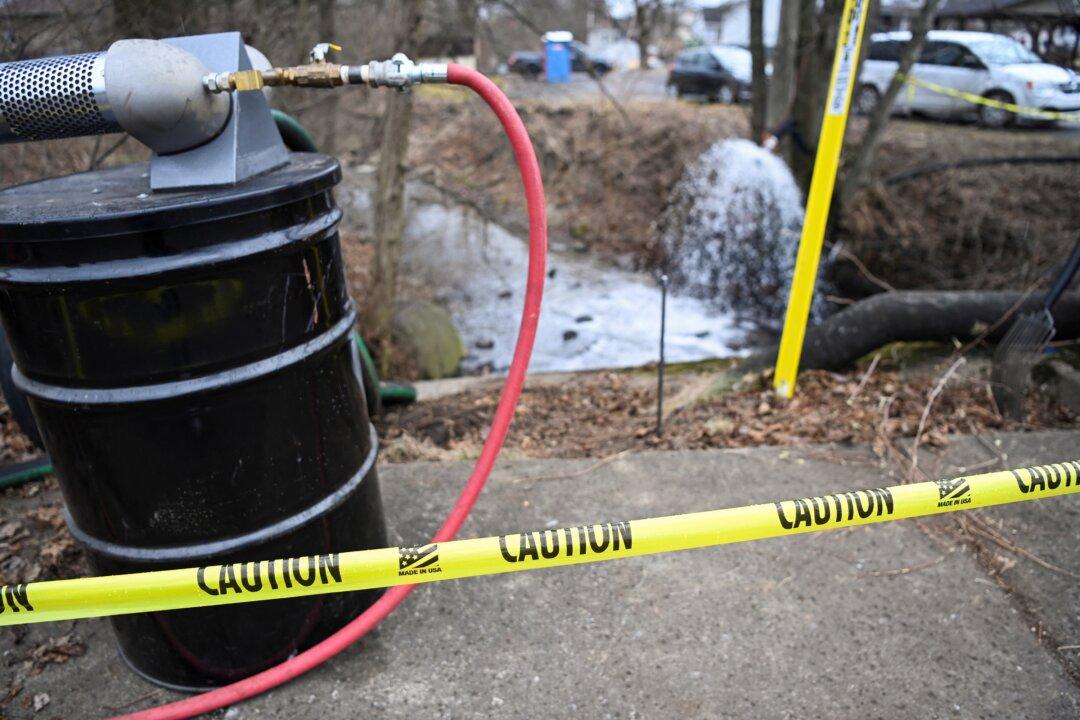Toxic wastewater that was used to put out a fire after this month’s train derailment in East Palestine, Ohio, will be sent to a Houston suburb for disposal, according to a top official in Harris County, Texas.
“I and my office heard today that ‘firefighting water’ from the East Palestine, Ohio, train derailment is slated to be disposed of in our county,” Harris County Judge Lina Hidalgo said in a statement on Twitter on Feb. 22.





